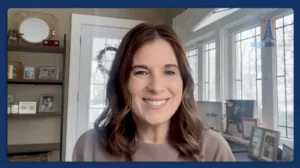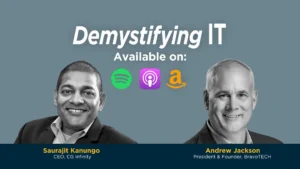What AI Means for Future Scientists
It is a cry that has been repeated for centuries now— ‘technology will take my job.’ This is a sentiment that is certainly not to be taken lightly. History shows that technology does indeed change the nature of work. Perhaps the most dramatic example of this was the industrial revolution during the late 18th and early 19th centuries that saw Europe and America transform from agrarian states to mechanized giants powered by coal and whale oil.
A New Revolution?
Today a quieter but no less drastic shift is taking place as mobile technology, blockchain, and artificial intelligence (AI), among other digital technologies, change the nature of work for many. While a first reaction might be to worry for the safety of human jobs, it is more accurate to say that technology changes the nature of certain jobs.
For example, ATMs did not remove the job of the bank teller, it simply altered their primary role from dispensing cash, to opening accounts and other clerical tasks.
The AI Effect
Perhaps the most disruptive, and ethically vague, of these new technologies is AI. One big concern related to AI is how it will affect jobs that require advanced quantitative skills, such as those in the scientific fields. Obviously, the scientific fields encompass a great deal of jobs requiring an equally diverse set of skills and qualifications. For the purposes of this article, we are discussing jobs that require higher degree such as an MS/Ph.D, or a medical qualification such as an MD.
Beginning with the assumption that these types of jobs are more at risk of artificial intelligence automation. Jobs in scientific fields are by and large more quantitative than their counterparts in the humanities or social sciences. Quantitative work is often formulaic by nature, and therefore capable of being done by highly-intelligent computers. Certain lab processes such as component testing are already being done by machines.
However, many scientific fields also require highly specific kinds of qualitative and ethical reasoning as well. This can most easily be seen in the medical fields, where a certain amount of humanity is required to diagnose and understand medical tests.
What it Means for Science
A recent article published by a career radiologist for The Scientist magazine highlights the delicate human decisions he must make every day, decisions that, at least currently, artificial intelligence is incapable of making. He demonstrates how AI is very good at identifying the fact based “what” questions, but not the judgement based “why’s.”
These are insights based on human experience and understanding that are incredibly difficult if not impossible to program. This is the human strength of the sciences and leveraging, cultivating this advantage should become a priority for educators and institutions in the near future.
Emphasizing the human side of the sciences and making it a bigger part of the field, will help prevent AI from automating science field jobs. And it is not just the sciences; Re-discovering the humanities has been a growing movement in areas such as business as well, where fields like ethical philosophy and creative design thinking have become popular to not just avoid automation, but to inject some meaning and, well, humanity into the field. At the end of the day, machines are not human and, at least for now, there are somethings that humans are just better at.
For the latest news, videos, and podcasts in the Science Industry, be sure to subscribe to our industry publication.
Follow us on social media for the latest updates in B2B!
Twitter – twitter.com/ScienceMKSL
Facebook – facebook.com/marketscale
LinkedIn – linkedin.com/company/marketscale








